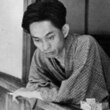Men without women: stories
Description
More Details
Gabriel, Philip,1953- translator., trl
Goossen, Ted translator., trl, Translator
Heyborne, Kirby narrator., nrt, Narrator
Murakami, Haruki Author
9781524721817
9780451494634
9780451494627
9781524721787
Table of Contents
From the Book - First United States edition.
Excerpt
Similar Titles From NoveList
Similar Authors From NoveList
Published Reviews
Booklist Review
*Starred Review* Whether in his epic-scale fiction or in his shorter work, Murakami mixes motifs drawn from ordinary life (Italian food, movies, jazz, the Beatles) with the extraordinary presence of alternate realities, but somewhere in that hypnotic combination, there is always a love story. In these seven short tales, told with the author's signature flatness of tone, which always camouflages deep wellsprings of emotion, the overriding theme is the absence of love, at least on the surface. The narrators' circumstances vary widely from a man who strikes up a friendship with one of his dead wife's lovers to an inverted version of Gregor Samsa (his metamorphosis is from cockroach to man) but they all share a deep melancholy and a profound loneliness as they remember the curious paths their lives have taken. The title story, which appears last and serves as a kind of summing up, features an ordinary married man who receives a phone call telling him that his former lover, M, has committed suicide. Juxtaposing the almost clinical narrative style against both scenes of excruciating loneliness and flashes of deadpan humor (What I remember most about M is how much she loved elevator music), Murakami upends all our expectations, revealing the tragic yet sustaining lie of his title: the men in these stories live both on and below the surface of reality, and in the latter, they will never be without women.--Ott, Bill Copyright 2010 Booklist
Publisher's Weekly Review
In this collection of new stories, Murakami (1Q84) returns to familiar themes of youthful regrets, untenable romantic triangles, strange manifestations of sexual frustration, and inexplicable, often otherworldly happenings while dipping into the lives of seven middle-aged men, each caught up in the passions of a mysterious woman. In "Drive My Car," a stage actor hires a new driver, his first female chauffeur. Between rehearsing lines and listening to classic rock, the normally reticent widower begins to chat with the young driver, eventually revealing a friendship he formed with one of his former wife's lovers. In "Yesterday," a man who works at a coffee shop convinces a coworker to date his girlfriend while he works to pass his university entrance exams. In "An Independent Organ," a plastic surgeon who lives a contrived life of well-managed affairs descends into depression and starves himself to death after falling in (unrequited) love with one of his liaisons. Although the plotting can be repetitive, Murakami's ability to center the stories on sentimental but precise details creates a long-lasting resonance. For instance, the narrator of "An Independent Organ" can never use a squash racket the plastic surgeon left him: the lightness reminds him of his frail, dying body. In "Scheherazade," the standout of the collection, a man who can never be outside for unexplained reasons develops a bond with his in-home caretaker, who tells him stories after they have sex. She remembers being a lamprey in a former life and misses the profound silence of the sea floor. (May) © Copyright PWxyz, LLC. All rights reserved.
Library Journal Review
Murakami's (Kafka on the Shore) latest short story collection maintains the author's high standard of literary weird fiction. This collection centers on the titular concept, with stories of life after men's relationships have ended in death or divorce, addressing how these men are changed by that disconnection. The author's style takes a variety of forms, from straightforward in a tale of an actor relating his search for answers about his deceased wife to his chauffeur, to magical realism in the tale of a spirit saving a bartender from his own emotional stasis and entropy after he walked in on his wife with another man. Kirby Heyborne is a perfect reader for Murakami's characters, lending just the right cadence and timbre to match the complex and often reserved men of whom he speaks. Verdict Another fantastic collection from Murakami, rich with emotion and written with mastery. Highly recommended for fans of literary fiction, Japanese fiction, weird fiction, and domestic fiction and for older male readers.-Tristan Boyd, Austin, TX © Copyright 2017. Library Journals LLC, a wholly owned subsidiary of Media Source, Inc. No redistribution permitted.
Kirkus Book Review
"Our relationship isn't exactlynormal": as ever, a glimpse into the strange worlds people invent by the always inventive Murakami (Absolutely on Music: Conversations, 2016, etc.).If you are one of Murakami's male characters, you do what you can to be different: sure, you sleep around and drink a lot of whiskey, but you also read books and listen to music, especially his beloved Beatles, who provide two of the seven chapter titles here. If the title story pays homage to Hemingway, there's nothing much Hemingway-esque about any of the players except perhaps a world-weary resignation to the way things are, as well as a few odd affectations that may not mean much to non-Japanese readers; in the story "Yesterday," for instance, one character speaks a dialect from a region that isn't his own. "Why does somebody who was born and raised in Tokyo go to the trouble of learning the Kansai dialect and speak it all the time?" Why indeed? If you are a female Murakami character, you are likely to be disaffected and a little lonely, though no more passive than any of the males: things happen to Murakami's people more than they make things happen. Nowhere is this more true than in the compellingly odd tale "Samsa in Love," which opens, with Kafkaesque matter-of-factness, with the words "He woke to discover that he had undergone a metamorphosis and become Gregor Samsa." Aside from a certain priapism, things aren't all that much different in his life, though a woman he meets schools him in an important truth: "Maybe working on the little things as dutifully and honestly as we can is how we stay sane when the world is falling apart." Considering the state of the world, that's a valuable takeaway and well worth the price of admission. Not groundbreaking but certainly vintage Murakami: a little arch, a little tired, but always elegant. Copyright Kirkus Reviews, used with permission.
Booklist Reviews
*Starred Review* Whether in his epic-scale fiction or in his shorter work, Murakami mixes motifs drawn from ordinary life (Italian food, movies, jazz, the Beatles) with the extraordinary presence of alternate realities, but somewhere in that hypnotic combination, there is always a love story. In these seven short tales, told with the author's signature flatness of tone, which always camouflages deep wellsprings of emotion, the overriding theme is the absence of love, at least on the surface. The narrators' circumstances vary widely—from a man who strikes up a friendship with one of his dead wife's lovers to an inverted version of Gregor Samsa (his metamorphosis is from cockroach to man)—but they all share a deep melancholy and a profound loneliness as they remember the curious paths their lives have taken. The title story, which appears last and serves as a kind of summing up, features an ordinary married man who receives a phone call telling him that his former lover, "M," has committed suicide. Juxtaposing the almost clinical narrative style against both scenes of excruciating loneliness and flashes of deadpan humor ("What I remember most about M is how much she loved elevator music"), Murakami upends all our expectations, revealing the tragic yet sustaining lie of his title: the men in these stories live both on and below the surface of reality, and in the latter, they will never be without women. Copyright 2017 Booklist Reviews.
Library Journal Reviews
Murakami's last story collection, 2009's Blind Willow, Sleeping Woman, was followed by five consecutive New York Times best sellers, with 2014's Colorless Tsukuru Tazaki and His Years of Pilgrimage hitting the top spot and now boasting more than 250,000 copies in print. Five of the seven stories in this new collection, focusing on men who find themselves alone, have stirred interest by appearing in The New Yorker.. Copyright 2016 Library Journal.
Publishers Weekly Reviews
In this collection of new stories, Murakami (1Q84) returns to familiar themes of youthful regrets, untenable romantic triangles, strange manifestations of sexual frustration, and inexplicable, often otherworldly happenings while dipping into the lives of seven middle-aged men, each caught up in the passions of a mysterious woman. In "Drive My Car," a stage actor hires a new driver, his first female chauffeur. Between rehearsing lines and listening to classic rock, the normally reticent widower begins to chat with the young driver, eventually revealing a friendship he formed with one of his former wife's lovers. In "Yesterday," a man who works at a coffee shop convinces a coworker to date his girlfriend while he works to pass his university entrance exams. In "An Independent Organ," a plastic surgeon who lives a contrived life of well-managed affairs descends into depression and starves himself to death after falling in (unrequited) love with one of his liaisons. Although the plotting can be repetitive, Murakami's ability to center the stories on sentimental but precise details creates a long-lasting resonance. For instance, the narrator of "An Independent Organ" can never use a squash racket the plastic surgeon left him: the lightness reminds him of his frail, dying body. In "Scheherazade," the standout of the collection, a man who can never be outside for unexplained reasons develops a bond with his in-home caretaker, who tells him stories after they have sex. She remembers being a lamprey in a former life and misses the profound silence of the sea floor. (May)
Copyright 2017 Publisher Weekly.
































